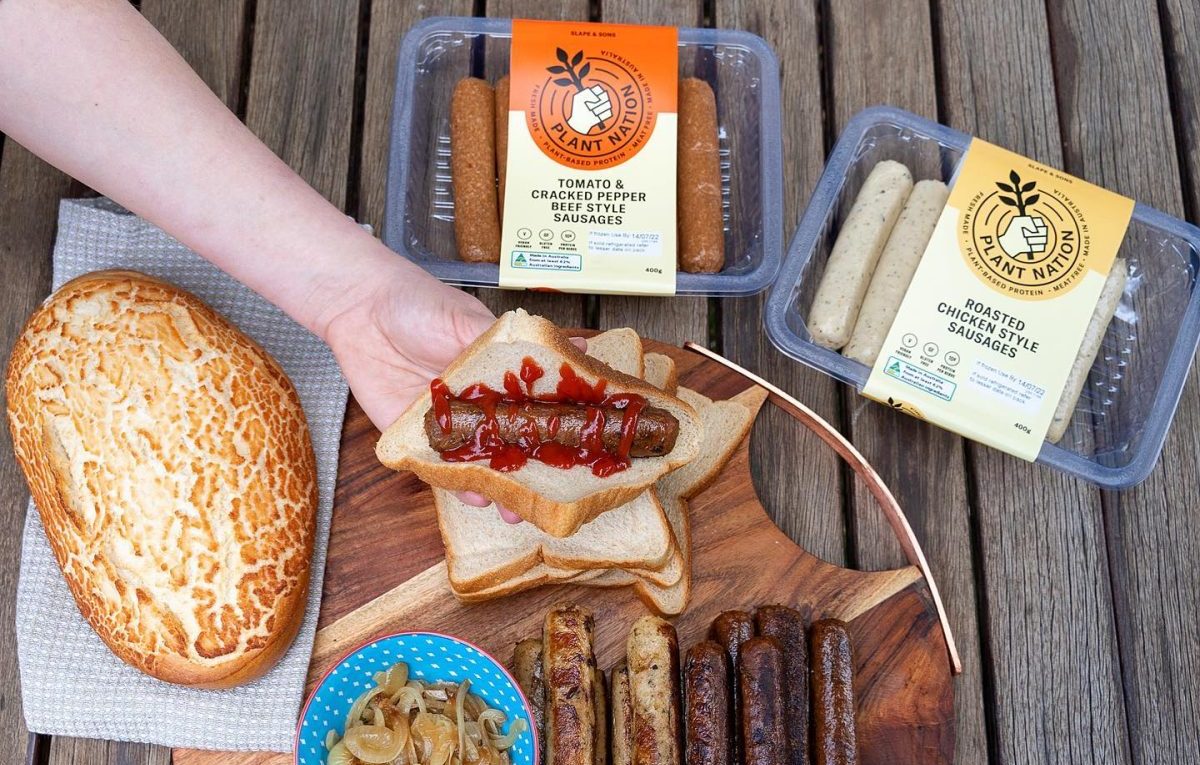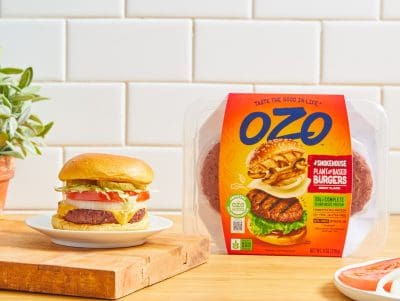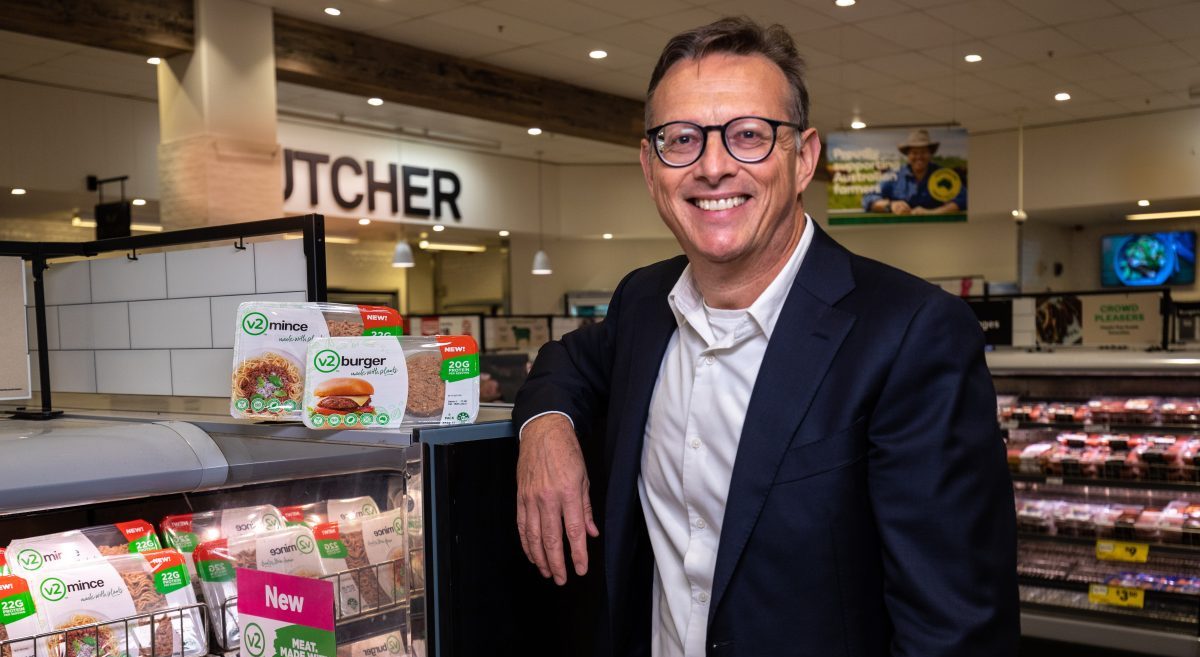
Plant Nation is a brand of plant-based products owned by South Australian meat processors Slape & Sons. Photo: Plant Nation
THE Australian plant-based protein sector is experiencing exponential growth, with a most unlikely industry leading the way in pioneering investments, meat businesses.
Modelling by Deloitte and Food Frontier predicts the local plant protein market to grow to almost $3 billion by 2030 with Ariztom Advisory predicting the global market to grow to US$14.5B by 2025.
Meat companies, from global firms to small operations, are keen to take a slice of the expanding sector, with case studies highlighting the economic benefits of investing in plant-based products.
Perceived health and environmental benefits of these products appear to be driving consumer demand with animal-meat producers targeting the “flexitarian” market by duplicating its the taste and texture with plant protein.
Although most of the raw material used to make these products in Australia is currently imported, the increase in local manufacturing could create the perfect conditions for more growers to up their pulse production.
A joint announcement by red meat-processing company Thomas Foods International (TFI), Australian Plant Proteins and AGT Foods Australia to create a plant-based protein hub in South Australia last week highlighted interest in the growing sector.
TFI Group managing director Darren Thomas said in a statement that he saw plant-based protein as a “natural complement” to traditional lamb, beef, mutton and goat products.
“The market for plant-based products is also expanding rapidly,” Mr Thomas said.

TFI managing director Darren Thomas
“You see this in so many cafes and restaurants which now offer entire menus that are plant-based in addition to their main menu.
“As a business Thomas Foods International is well placed to help meet that growing demand.
“We look forward to opening up new markets, offering existing customers new products and further strengthening relationships with growers as we embark on this ground-breaking project.”
Small businesses make the move
Another South Australian success story, family-owned business Slape & Sons has also seen the benefits of introducing a plant-based brand to their beef, pork and chicken product range.
The third-generation company, employees about 50 people, and expanded into the plant-protein market about four years ago by creating, Plant Nation.
Originally partnering with Hungry Planet, Slape & Sons has now shifted away from the American operation to source soy products from an Australian-based supplier, moving their percentage of local product from 12 per cent to over 60pc.
Health conscious insights
Slape & Sons national sales manager, Brian Clinch, said it has been a learning curve for the company, which was still tinkering with the optimal way to source the raw material, manufacture and sell the finished product.
He said, like many meat producers moving into the plant-protein space, the goal was to attract meat-eating, flexitarian consumers to plant-based products that mimic the attributes of meat.
He said most of the consumers in the plant-protein space had health as a key driver for their move away from animal protein.
“We’re aiming at that market of meat-eaters, flexitarians, of people looking to try anything rather than vegan only and people who are not ethically vegan, but more driven by health,” Mr Clinch said.
“For us, it’s how do we make it more appealing, more health conscience, and we are open to speak to people about how we improve it and make sure the flavour is still there.”
Mr Clinch said the company’s gradual shift to include plant-based products was put into action several years ago when they started trialing alginate sausage casings made of cultured seaweed.
“Slape & Sons, although small, was the first company in Australia to have alginate casing on a sausage.
“We had a vision for plant-based at some point years ago.
“You wouldn’t be able to make plant-based products without the alginate casing.”
JBS, Cargill buy in
At the other end of the scale, the world’s largest meat processor, JBS Foods, and global food producer and manufacturer, Cargill, have also taken major steps to grab a share in the booming plant-based market.
Cargill, which owns a majority stake in Australian beef processor, Teys Brothers, released a plant-based protein white paper last year, which affirmed the popularity of these products was due to their perceived health and environmental benefits.
Like the experience of Slape & Sons, Cargill’s research found health benefits to be one of the main reasons consumers switched to plant protein, with over half of the respondents to their survey saying they limited or reduced animal protein due to health reasons.
Although none of their Australian operations have introduced plant-based manufacturing, internationally Cargill has launched plant-protein products at its Chinese and US manufacturing facilities.
Consumers drive demand
Owner of 47 feedlots and processing sites across Australia, JBS Foods has a significant footprint in the plant-protein sector starting with launching a plant-based hamburger range through its company Seara in 2019.

JBS-owned Planterra Foods has launched a range of plant-based foods under the OZO Foods brand. Photo: OZO Foods
JBS has since purchased plant-based companies Planterra and in April 2021 bought Vivera, Europe’s third-largest plant-based protein producer.
Speaking just after the release of its first plant-based product the then JBS Global Innovation Lead, Christy Lebor, said consumer behaviour as well as the need to make a sustainable and viable business into the future drove JBS’s move to plant-based products.
“We assess the market and what is going on and ask if there is real behaviour change,” Ms Lebor said in a statement.
“We know, at JBS, we are the biggest protein company, and we will remain the biggest protein company, whatever it takes to do that.
“If plant-based becomes a meaningful part of the protein segment, we will be there in a big way.”
Ms Lebor said the plant-based sector was becoming more mainstream, with consumers making health and environmental benefits a priority.
“You do see a fundamental shift in consumer behaviour.
“What started as vegan or vegetarian is now just a restricted diet or an ethics-driven diet; it’s a lifestyle now.
“It’s turned into something that is attainable for your everyday consumer, something they can do and feel good about.”
Mr Lebor said she believed JBS, as a meat producer, had significant expertise needed to create plant-based products that had the flavour and texture of animal meat.
“What we are looking at is to replicate meat.
“We are a meat company, so we have a lot of expertise internally.”

v2food founder and CEO Nick Hazell. Photo: v2food
Plant, animal protein can co-exist
On the other side of the table, plant protein businesses are keen to collaborate with the traditional meat industry and see the value in sharing data, innovations and even manufacturing facilities.
Australian-owned plant protein business v2foods founder, Nick Hazell, said that it is imperative that companies like his should work with and not against meat processors.
“We work with meat industry partners who manufacture our meat,” Mr Hazell told ABARES Outlook online last week.
“They are a very important partner of ours.
“I don’t believe that plant-based protein is an existential threat, particularly to the Australian meat industry.
“But we need to create far more meat than we could ever do with animals.
“We could do it from plants as well as from animals.”

Interesting article. Considering the impact carbon has on meat industries, it is not surprising to see meat businesses investing in plant protein. Not only in Australia but also in France where I live several plants are already functioning.
Cordialement. R.Idier, Nice, France.